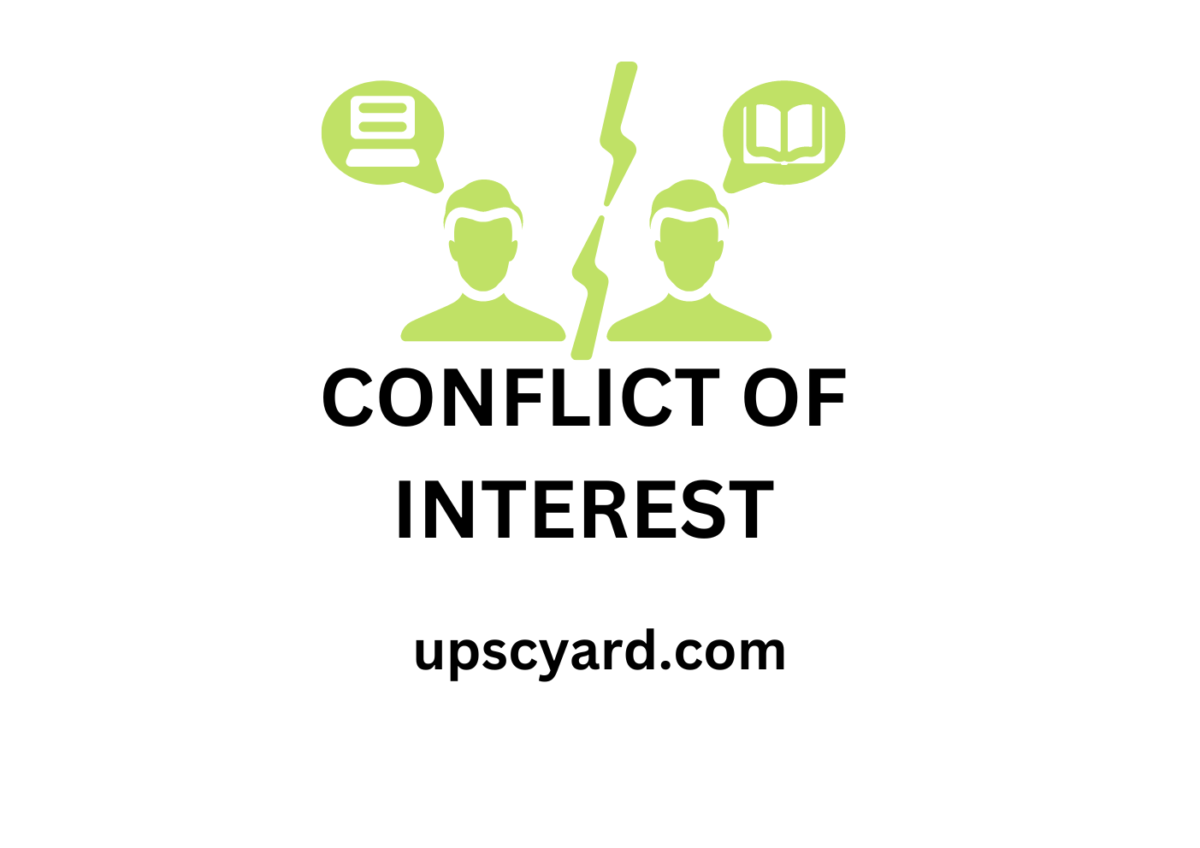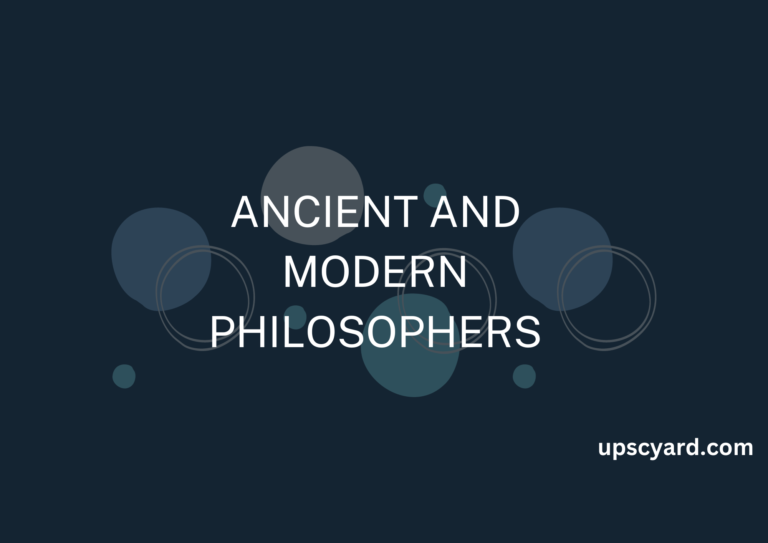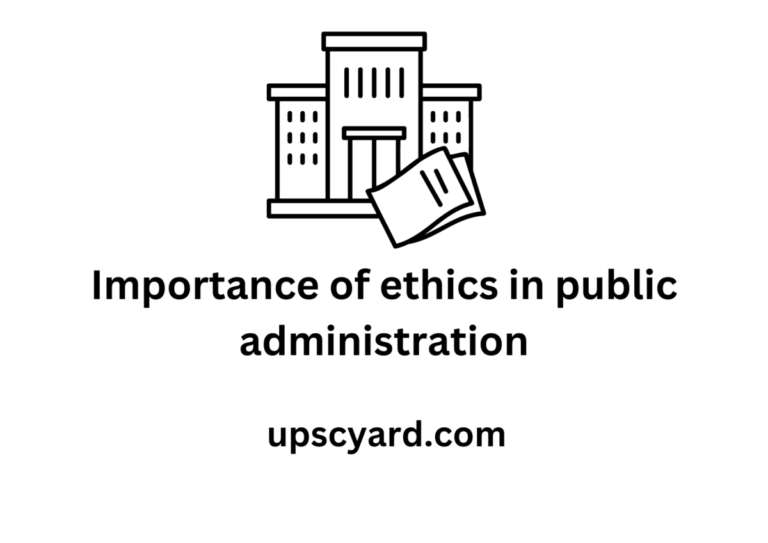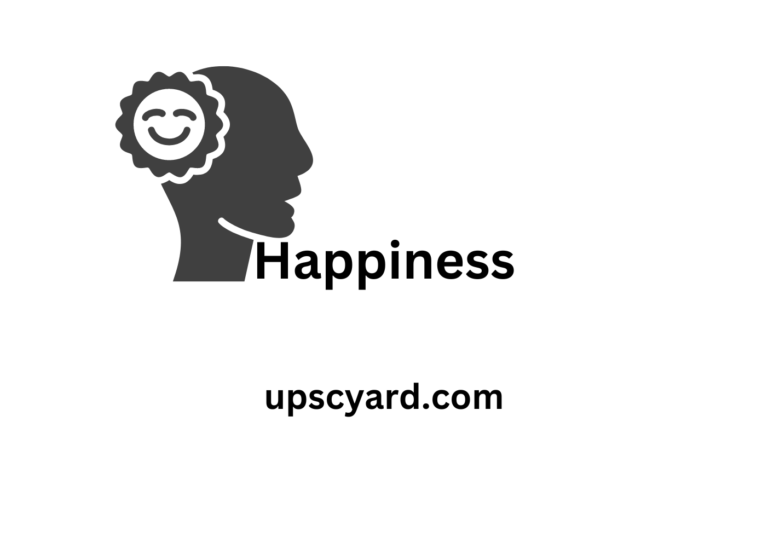Definition of Conflict of Interest
A conflict of interest occurs when a person’s personal interests conflict with the best interests of another person or organization to which they have loyalty.
For instance, an employee who accepts a bribe to procure substandard goods for their company would benefit personally while harming their employer.
A conflict of interest can also arise when an individual is accountable to two different parties or groups with conflicting needs. In such a situation, fulfilling the needs of one party would cause harm to the other.
Genuine conflicts of interest arise when an individual or entity is presently involved in an endeavor that generates a conflict, like possessing a financial stake in a firm they oversee.
Prospective conflicts of interest relate to scenarios in which an individual or entity could be swayed by conflicting interests or allegiances, even if they have not undertaken any action leading to a conflict.
Example of conflict of interest in judiciary
The principle of natural justice dictates that a person should not act as a judge in their case, yet when Ranjan Gogoi, serving as the Chief Justice of India, presided over the proceedings of the sexual harassment case filed against himself, it raised concerns as it seemed to contradict this fundamental principle.
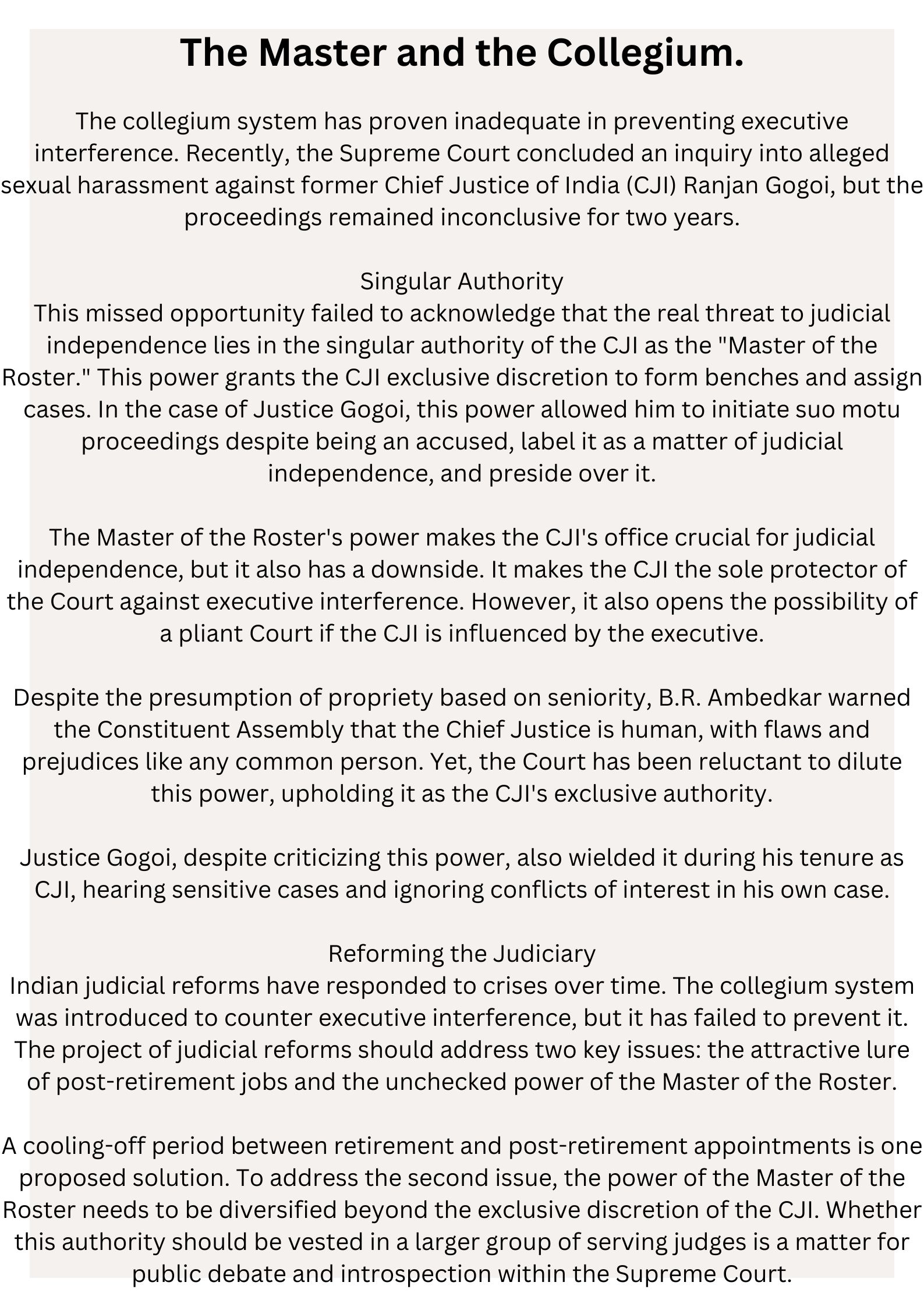
Conflict of interest – UPSC Mains Questions
Q. Evaluate the perspective of the Supreme Court regarding instances of “conflict of interest” in high-ranking public positions. Should there be legislation in place to penalize individuals implicated in such circumstances? Offer your opinion on this matter and provide a comment to support your stance.
- The Supreme Court has consistently recognized the significance of avoiding conflicts of interest in high public offices to preserve the integrity and impartiality of the decision-making process.
- The Court has emphasized that public officials should adhere to the highest standards of conduct and ensure that their personal interests do not compromise the public’s trust or the fair administration of justice.
- Judicial pronouncements have stressed that conflicts of interest undermine the principle of equal treatment and can lead to biased decisions that erode public confidence in the judicial system.
- The Supreme Court has taken a strict view on conflicts of interest and has, in several instances, disqualified public officials from participating in matters where their personal interests could potentially influence their decision-making.
- However, there is a need to examine the practicality and feasibility of implementing laws specifically targeting conflicts of interest. Balancing the right to privacy and personal autonomy with the public’s right to transparent governance is crucial.
- Developing a comprehensive framework to address conflicts of interest would require clear definitions, effective mechanisms for disclosure, and robust oversight to ensure compliance.
- Legislative measures could be considered to provide a standardized approach to conflicts of interest, establishing ethical guidelines, and outlining consequences for violations.
- It is important to strike a balance between deterring individuals from engaging in conflicts of interest and ensuring that the law does not become a tool for unnecessary harassment or undue restriction.
Conclusion:
The Supreme Court’s viewpoint on conflicts of interest in high public offices underscores the significance of maintaining impartiality and upholding public trust. While the need for legislation to punish individuals involved in such cases can be debated, it is crucial to find a delicate balance that discourages conflicts of interest while respecting individual rights and ensuring fair governance. Establishing a comprehensive framework with transparency, disclosure requirements, and effective oversight mechanisms can contribute to maintaining the integrity of public offices and bolstering public confidence in the system.
Q. Is it justifiable to allow for conflict of interest in rare cases when a public servant makes decisions based on humanitarian grounds? If you were to become an IAS officer, would you advocate for such exceptions? Provide evidence to support your stance.
The question of whether conflict of interest should be allowed in rare cases based on humanitarian grounds for public servants is a complex and contentious issue. While the concept of acting in the best interest of humanity is noble, it must be balanced against the principles of transparency, fairness, and impartiality that underpin the public service.
Allowing exceptions to conflict of interest regulations may open the door to potential abuse and undermine the integrity of public institutions. Public servants have a fiduciary duty to act in the best interest of the public they serve, and any conflicts of interest could compromise their ability to make unbiased decisions.
Furthermore, making exceptions on humanitarian grounds can be subjective and susceptible to manipulation. Determining the legitimacy and extent of humanitarian considerations may be challenging, as personal biases and self-interest could influence the decision-making process.
However, it is crucial to acknowledge that every situation is unique, and rigid adherence to rules may sometimes impede the ability to address urgent humanitarian needs effectively. In such cases, public servants may find themselves torn between their obligations and their conscience.
If I were to become an IAS officer, I would advocate for a balanced approach. I believe that any exception to conflict of interest regulations must be made with extreme caution, with clear guidelines and oversight mechanisms in place. Robust ethical frameworks and strong institutional checks are essential to ensure that any departures from standard procedures are genuinely justified and in the best interest of the public.
Moreover, establishing clear criteria and involving multiple stakeholders in decision-making processes can help minimize personal biases and enhance accountability. Transparency and public disclosure are vital to maintain public trust and confidence in the integrity of public servants.
In conclusion, while recognizing the importance of humanitarian concerns, it is crucial to maintain the principles of transparency, fairness, and impartiality in public service. Striking a delicate balance between upholding ethical standards and addressing urgent humanitarian needs requires careful deliberation, strong institutional mechanisms, and a commitment to serving the greater good.
Q. Explain the meaning of ‘conflict of interest’ and analyze whether a scenario involving a professor who is mentoring ten students in their doctoral thesis and engaging in a romantic relationship with one of those students can be considered a conflict of interest. Justify your viewpoint by presenting logical arguments.
- Conflict of interest refers to a situation where an individual’s personal interests or relationships potentially compromise their ability to act in the best interest of another party or organization to which they owe a duty or loyalty.
- In the given scenario, the professor-student romantic relationship raises concerns about the potential conflict of interest due to the power dynamics, ethical implications, and the impact on the academic environment.
- The professor’s role as a mentor and evaluator creates an inherent power imbalance in the relationship, potentially influencing the student’s academic progress, evaluation, and future prospects.
- The conflict arises because the professor’s personal interests may interfere with their impartiality, objectivity, and fairness in supervising and evaluating the student’s doctoral thesis. It creates a situation where the professor may be biased towards the student involved in the romantic relationship, potentially giving them preferential treatment or compromising academic integrity.
- The professor’s actions may also undermine the trust and credibility of the academic institution, affecting the overall academic environment and the perception of fairness among other students and faculty members.
- From an ethical standpoint, engaging in a romantic relationship with a student under their supervision raises questions about professional boundaries, consent, and potential exploitation.
- In an academic setting, it is crucial to maintain a professional and ethical environment that upholds the principles of fairness, meritocracy, and equal opportunities for all students. The professor’s involvement in a romantic relationship with a student compromises these principles and can be perceived as a violation of trust.
- Therefore, considering the power dynamics, potential bias, ethical concerns, and impact on the academic environment, it can be concluded that the scenario represents a clear case of conflict of interest.
- Academic institutions often have policies in place to address such conflicts of interest, emphasizing the need for disclosure, transparency, and appropriate actions to mitigate any potential harm to the student’s academic progress and the integrity of the institution.
F.A.Q.
What are the examples of Conflict of interest
A government official who has financial investments in a company that is awarded a lucrative government contract, creating a conflict between their personal gain and their duty to act in the best interest of the public.
A judge who has a close personal relationship with one of the parties involved in a case, potentially compromising their impartiality and the fairness of the legal proceedings.
A public servant who uses their position to secure privileges or advantages for themselves or their family members, conflicting with their duty to serve the public interest.
A lawyer representing a client while having a personal relationship with the opposing party, creating a conflict between their duty to advocate for their client and their personal connection.

